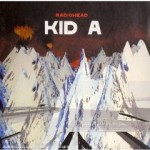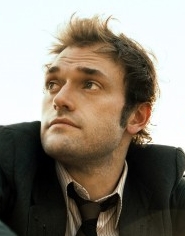Chris Thile has been described as “the most remarkable mandolinist in the world”, with a range that spans bluegrass to Bach, plus many points in between and beyond. He has won acclaim as part of Nickel Creek and Punch Brothers, and for his solo career, including a 2012 MacArthur “genius grant” and several Grammy Awards. And starting in 2016, he will take over as host of NPR’s Prairie Home Companion in 2016.
This interview was done by phone on 11/3/15 for a preview article for Thile’s solo performance at the Lobero Theatre in Santa Barbara on 11/8/15.
Jeff Moehlis: How’s it going?
Chris Thile: I’m great, man. It’s a beautiful day here in Wilmore, Kentucky, of all places.
JM: I know Kentucky, but I don’t know Wilmore.
CT: I don’t think very many people do. Maybe just the 3,500 or so that live here. But it’s a lovely little place.
JM: This interview is for your upcoming show in Santa Barbara. I’ve seen you perform twice here at the Lobero Theatre, once with the Punch Brothers and once when you played a solo show, doing mostly Bach. Have you enjoyed your previous visits to Santa Barbara, and what can we look forward to at this upcoming show.
CT: The Lobero, as all of you lucky Santa Barbarans well know, is one of the most beautiful concert halls in the world. It’s especially neat because of the intimate size, and the acoustics are just gorgeous. It’s a lovely place to play. To be able to lunch at La Super-Rica on a show day is just a luxury beyond luxury. So I’m looking greatly forward to it [laughs].

This show – it’ll be fairly different from my last solo show at the Lobero. There’ll be a little bit less Bach, and the Bach I play will all be different. I recorded the first three of the six Sonatas and Partitas for solo violin that Bach wrote, and I performed two of them the last time – I think the G minor and the B minor. So this time I’ll be doing the A minor Sonata. And then maybe a couple of other things from the last three that he wrote, as I prepare to record them eventually. But the evening will actually predominantly be other things, maybe mostly original things that I’ve been working on. Some a little older, some a little newer. Things that I like to play when I’m all by myself up there on stage.
The other thing that’s a little different this time around, I’m trying to really utilize the place that we’re in, the day that it is, how it feels on a given night, to be onstage with the particular people who have come that evening. I’m trying to be a little lighter on my feet, a little less beholden to whatever setlist I end up writing that day. Just see where the evening goes.
JM: You’re still very young [Chris is 34 years old], but you’ve been writing songs for at least 20 years. How has your approach to composing music changed over the years?
CT: I guess it’s probably a lot more multifaceted these days than it used to be – the approach, I mean. I think I’ve always tried to write a lot of different sorts of things, but the way in which I go about doing that is a lot more varied now. When I was younger, almost everything came directly from the mandolin, just sitting in a room with the instrument, seeing where my fingers would take me. I still sit around a lot with the mandolin, because in a way it’s almost like my speaking voice. It’s such a part of me at this point, 29 years into my relationship with it. But I think now the music is coming less from my fingers, and more from everything else. Not to get too fluffy with it, but from my soul [laughs], from my heart, or gut, my head, my imagination.
I’m trying to approach the creation of music a little bit more like my favorite micro-creators, people like Tolkien, or David Foster Wallace, or for that matter Radiohead. People who make worlds that we can go exploring in, forgetting whatever might be pestering us on a given day. Just take a little break.
I feel like one of the most wonderful human impulses is to make a beautiful thing and give it to somebody. When people do that for me, I feel so fortunate – when I hear a record that I love, or honestly when I have a glass of wine that some vintner has poured his life into, a great cup of coffee – whatever it may be – to look at a great piece of art. That just makes me want to do what I do better, if possible.

JM: You have a very eclectic view on what the mandolin can do. You mentioned Radiohead – I loved when the Punch Brothers did the cover of “Kid A” when you were here. And of course you’re also doing Bach solo violin pieces. What draws you to a particular song or piece that someone else has written? What makes you think, “I want to do my version of that”?
CT: Usually it’s very precisely that I wouldn’t have written it myself, that I couldn’t have written it myself. And that I love it. I love it, and it’s not something that I would’ve thought to have written. When that happens, I want to get inside of it, like the little kid who takes apart household electronics and puts them back together to figure out how they work. That’s what I do with music that I haven’t written that I love. I’ve got to get in there.
It’s like the difference between eating something that you love and actually cooking it [laughs]. A cook’s going to know a lot more about what goes into it than a person who just eats the thing. Sometimes music that I love, I don’t feel compelled to actually get in there and learn how to cook it. But a lot of times I do want to get in there, in the musical kitchen, and start tossing the ingredients around [laughs], deconstruct the thing and reconstruct it. Invariably it ends up sounding different, and if I feel like the way in which it sounds different is good, if I feel like there’s a reason for it to exist in that form and not just its original form, then maybe I’ll perform it live.
JM: What advice would you give to an aspiring musician?
CT: Work hard every day. Just work and work and work and work. And if that seems tedious, then you probably ought to look at a different career. That’s really it. No detail is too small, no amount of time spent working on music is wasted.

JM: I understand that you’ll be the new host of Prairie Home Companion. What’s going on with that?
CT: We’re in the middle of discussions as to what form the show will take under my host-age [laughs]. You know, how that’ll be different from its current form, and how it’ll be the same. What Garrison [Keillor] has created is amazing. It’s an American treasure. I feel extraordinarily fortunate to have the opportunity to continue delivering that to people. I do think it’ll change a little bit to reflect what I might be able to bring to the table, but at the same time it’ll be recognizable as Prairie Home Companion. I just look forward to getting in there and getting my hands dirty.
JM: Do you feel any kinship, shall I say, with Trevor Noah who recently took over The Daily Show from Jon Stewart?
CT: [laughs] Well, I don’t know Trevor, but I certainly would love to have a beer with him and talk it all over.
JM: I read that you recently became a father – congratulations. How has being a father affected your worldview?
CT: Oh boy. Just about in every way. I love just holding him, and walking around with him and showing him things. Because when he looks at something, it’s like I get to see it for the first time again. I can see it in different ways through his eyes, in these beautiful ways. Like a leaf – he’ll look at a leaf, he’ll reach out and touch that leaf, and he’s so fascinated by it. I realize that I should be fascinated by it, that it’s fascinating.
After an afternoon of walking around with him in the yard and showing him things, and basically having him show me things, I go back to the practice/writing room with a mind humming with the beauty of life, the wonder of being alive, the wonder contained in every moment and every thing. I think it’s so easy to get cynical about it all, to start thinking about global warming, and how mean we can be to each other, and all those things. But when you look at the world through a six month old’s eyes, you can hit the refresh button. I really love doing that.
JM: You’re preparing for Prairie Home Companion, and it sounds like you’re going to record some more Bach pieces. Anything else in the works that you’d like to share?
CT: Yeah, a lot of other stuff. It’s probably in too ambiguous of a state to share in any meaningful way. But I have a solo piece I’m working on right now, something long-ish that tells a semi-coherent story, along the lines of the things I’m talking about, just trying to create a world that people can poke around in. Nothing too definite, nothing so definite that people can’t use it as a jumping off point for their own stories. Just something cohesive enough, with enough internal rules that it holds together, that it can support the weight of people exploring in it. I want to make more things like that.
JM: Sounds intriguing.
CT: Hopefully it’ll sound intriguing when it’s done [both laugh].


Discussion
No comments for “Interview: Chris Thile”